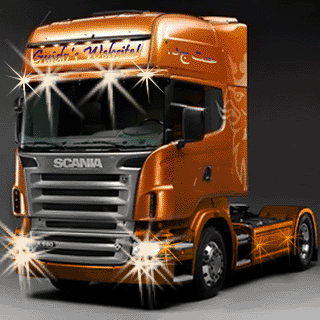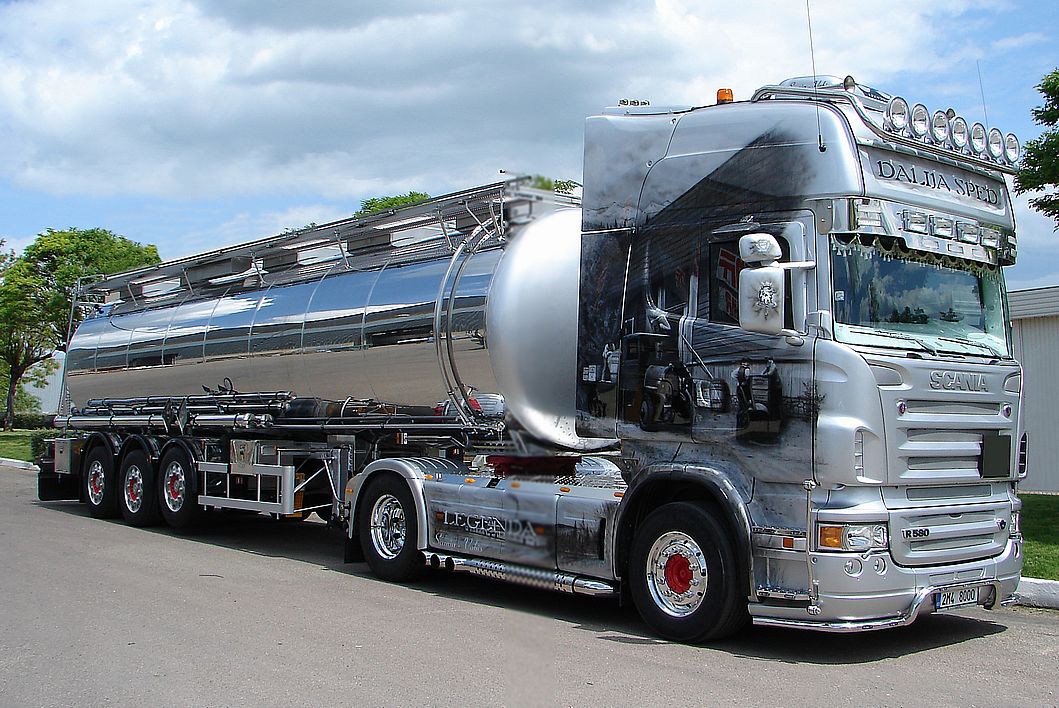|
Scania
is a leading European manufacturer of heavy trucks (British English: lorries), buses, and diesel engines, based in Södertälje,
Sweden.

|
 |
HISTORY
The company was founded in 1900 as Maskinfabriks AB Scania in the town of Malmö in southern Sweden. Scania is Latin for the province of Skåne. In 1911 Scania merged with another automobile and truck manufacturer, Vagnsfabriks Aktiebolaget i Södertälje (founded in 1891) (VABIS) of Södertälje in mid-east Sweden, to form AB Scania-Vabis. After the Second World War, Scania-Vabis imported Volkswagen cars, under the banner of "Svenska Volkswagen
AB".
In 1969 Scania-Vabis merged with SAAB, to form Saab-Scania AB. At this time, the Volkswagen subsidiary was renamed "V.A.G. Sverige AB".
When the SAAB-SCANIA corporation was split in 1995 the name of the truck and bus division changed to Scania
AB.
In 1999, Volvo attempted to buy Scania using some of the cash received from the Ford buyout of Volvo Cars, however the European Union blocked this as the merged corporation would have had a virtual monopoly on heavy trucks in northern
Europe.
As of June 30, 2006, the largest shareholder in Scania AB was the German automaker Volkswagen AG, owning 18.7% of the capital and 34.0% of the voting stock.
Scania produces only heavy trucks (i.e. over 16 metric tonnes or Class 8 in the US) and heavy buses (over 12 tonnes), and is the world's third largest make in these two segments.
Scania exports its trucks and buses to over 70 countries. They are regarded as more high tech than others in their class. Scania places great emphasis on technology, fuel efficiency and low emission.
Scania-Vabis and later Scania also manufactured trucks outside Sweden, in Argentina, Botswana, Brazil, Korea, Tanzania, The Netherlands, Zimbabwe and (temporarily) in the USA.
Many examples of Scania, Vabis and Scania-Vabis commercial and military vehicles can be seen at the Marcus Wallenberg-hallen (the Scania Museum) in Södertälje.
LOGISTICS
Logistics is the art of managing the supply chain and science of managing and controlling the flow of goods, energy, information and other resources like products, services and people from the source of production to the marketplace. It is difficult or nearly impossible to accomplish any international trading, global export/import processes, international repositioning of raw materials/products and manufacturing without a professional logistical support. It involves the integration of information, transportation, inventory, warehousing, material handling, and packaging. The operating responsibility of logistics is the geographical repositioning of raw materials, work in process and finished inventories where required at the lowest cost
possible.
PRODUCTION
LOGISTICS
The term is used for describing
logistic processes within an industry. The purpose of
production logistics is to ensure that each machine and
workstation is being fed with the right product in the right
quantity and quality at the right point in time.The issue is
not the transportation itself, but to streamline and control
the flow through the value adding processes and eliminate
non-value adding ones. Production logistics can be applied
in existing as well as new plants. Manufacturing in an
existing plant is a constantly changing process. Machines
are exchanged and new ones added, which gives the
opportunity to improve the production logistics system
accordingly. Production logistics provides the means to
achieve customer response and capital efficiency.Production
logistics is getting more and more important with the
decreasing batch sizes. In many industries (e.g. mobile
phone) batch size one is the short term aim. This way even a
single customer demand can be fulfilled in an efficient way.
Track and tracing, which is an essential part of production
logistics - due to product safety and product reliability
issues - is also gaining importance especially in the
automotive and the medical industry.

